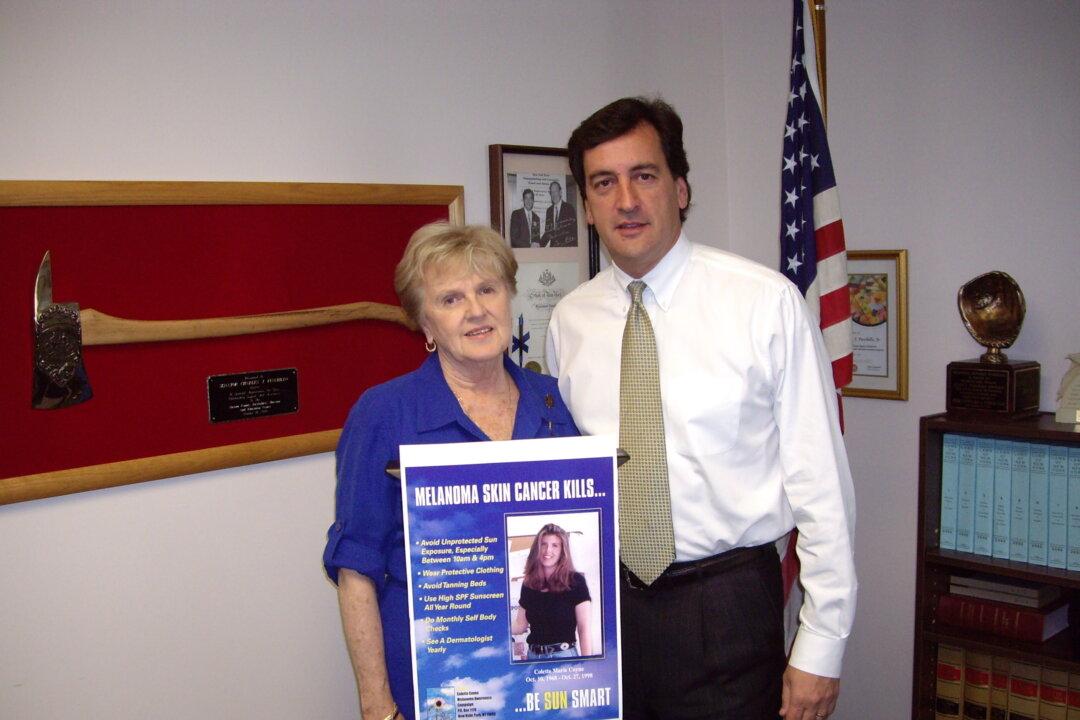LONG ISLAND, N.Y.—The worst enemy for the owners of tanning salons here in Long Island and throughout New York State is a lovely 80-year-old woman named Colette Coyne.
“I become angry when I hear the tanning industry claim that tanning beds promote health, and that tanning salons themselves closely monitor use by teens,” Colette said during an interview in her home in New Hyde Park last week. “Nothing is further from the truth. Tanning beds produce 15 times the deadly ultraviolet rays than do the sun and have become a major cause for the increase in melanoma in the young. And the only thing that the tanning industry is monitoring is its enormous profits. I will not rest until I can stop their industry of death.”





